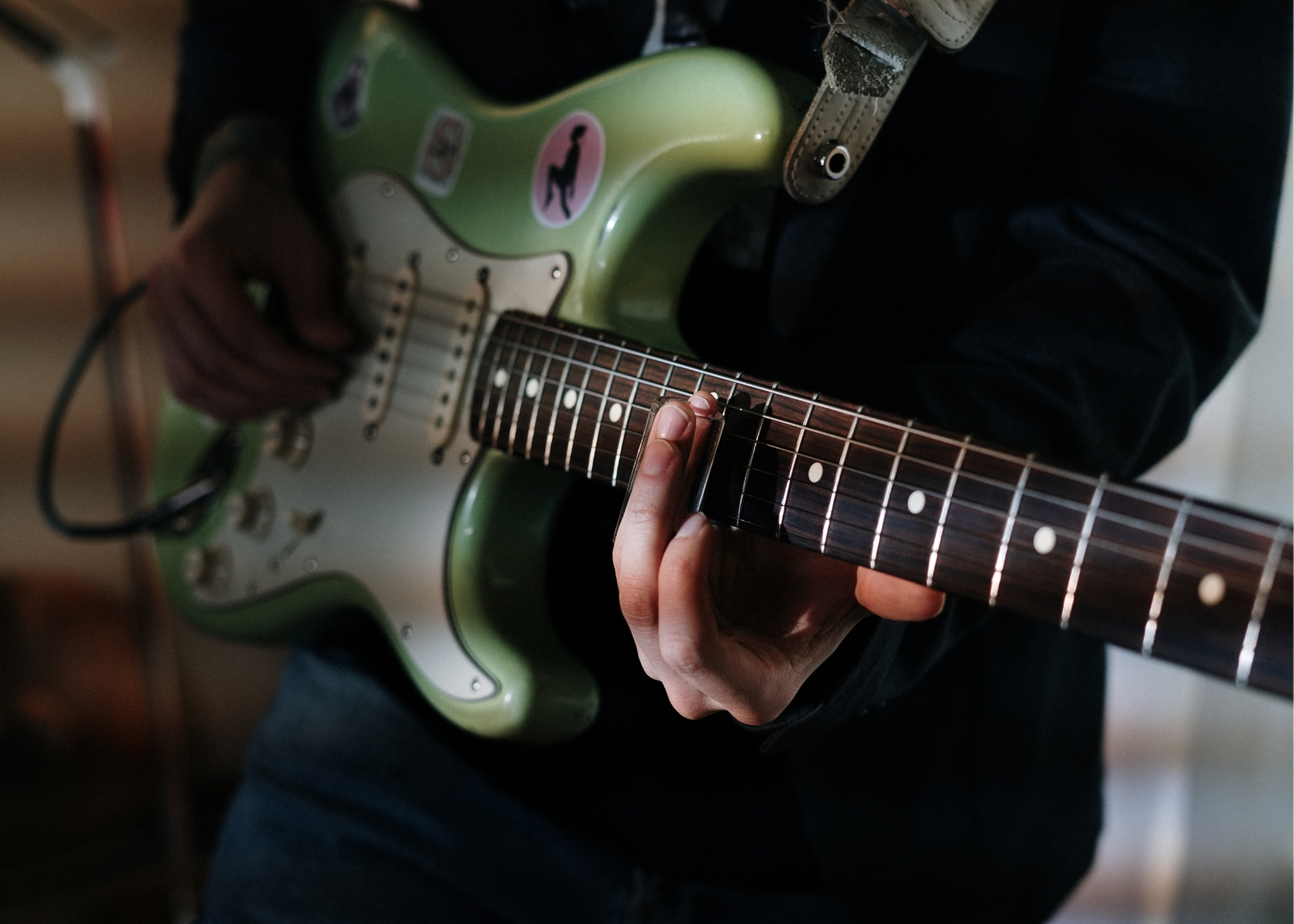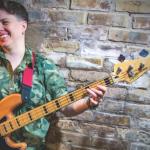Why Study the Fundamentals? (For guitar and fretted instrument players)

Having taught guitar and other fretted instruments for many years, my students often approach me with the same question: “Why do we study music fundamentals? I can already play my favorite riffs.” Certainly, learning great songs and riffs is a necessary and important component to becoming skilled at an instrument. After all, that is the end goal. There is nothing wrong with learning one’s instrument through trial, error, and experimentation. Why, then, are music fundamentals a necessary component of music lessons? Let’s take a look at what these basic skills are, what players might be missing without them, and how they can empower the player.
What are the fundamentals?
The fundamentals of music are the elements that define it: rhythm, pitch, melody, harmony, form, dynamics, timbre, and texture. These ingredients are the recipe for absolutely every musical composition, from Beethoven to Billie Eilish. As musicians, we learn these fundamentals by practicing skills such as scales and arpeggios (melody), rhythm exercises, chords (harmony), song structure (form), attention to dynamics and texture (as we add style and finesse to our playing), and even timbre by getting that perfect tone out of our gear.
A trained (or experienced) ear can detect the difference between musicians who are or are not attentive to these elements. This is why even the best contestants on reality television shows like The Voice and Songland have vocal coaches, producers, and experienced songwriters/performers critiquing their work. Musicians who master and maintain their fundamentals can be compared to athletes who maintain excellent overall physical fitness rather than exclusively practicing their sport. Achieving fluency in the language of music entails more than just learning songs and riffs.
I don’t want to be the next Mozart. I just want to rock. Why should I practice “do, re, mi?”
Dig that opening riff from AC/DC’s “Back in Black?” Want to learn it? There’s a long way and a short way to do that. The long way is to work through a note-for-note TAB, picking out each individual number on each individual string until you can piece them all together to complete the riff. The student who has studied their fundamentals is more likely to take the short route - recognizing that the famous riff is a collection of major chords, followed by a phrase derived directly from the E minor pentatonic scale (or blues scale, if you count the “bent” note), followed by a clever chromatic run. No TAB or YouTube tutorial needed, just pattern recognition honed by time spent familiarizing themselves with a couple of basic chords and scales. This is one example of how a player can “pick things up by ear.”
It is absolutely possible to become a great “by ear” player without ever studying scales, chords, etc. However, it takes much longer to build those skills without a logical framework in place. Music fundamentals can be compared to a painter’s techniques. A painter can learn how to emulate certain colors, textures, and styles through a long trial and error process, or they can be taught specific techniques that will empower them to more effectively generate their desired outcome.

...but what about (famous guitarist)? They’re totally self-taught, and they’re a genius!
There is more than one way to master a musical instrument. However, both those who are largely “self-taught” musicians and those who have had formal instruction share one characteristic: they learned their basics first. Take it from legendary shredder Eddie Van Halen, who mentioned in a 1981 Guitar World interview, “I developed my ear through piano theory, but I never had a guitar lesson in my life...”1 Van Halen’s understanding of universal musical concepts formed the foundation for his unmatched, boundary-shattering guitar virtuosity.
When contemporary guitar star Orianthi was asked about her learning process, she states, “I learned the basics and the fundamentals, but a lot of it was just listening and watching my favorite players and trying to re-create what they were doing.”2 In our present internet-dependent era, there are so many ways to pick up a few basics: video tutorials, instructional book downloads, online magazines, and of course your friendly live online lesson instructors. Why not accelerate the learning process and explore a few techniques?

Won’t “formal training” stifle my creativity?
Ever worry that if you take that first guitar lesson, it’ll take the “soul” out of your playing? Music is both a science and an art, and each player has their own style of learning and playing. In some instances, overanalyzing any artform can shift an artist’s focus too far toward the scientific aspects and make the artform rather robotic. However, when balanced with time spent being purely experimental, studying the scientific elements of music can actually enhance creativity. Why reject the knowledge that can help you reach your goal? Having a built-in library of musical-sounding patterns (like scales, arpeggios, chord progressions, and song forms) gets you closer to being able to take what you hear in your mind and make it come out of your instrument. Playing with that level of fluency, much like speaking a language fluently, enables a musician to convey their original ideas accurately and more quickly.
There are many ways to master an instrument. Not everyone’s quest for mastery is the same, and that’s ok. However, understanding the building blocks of music empowers the player to connect more deeply with what they are playing. Music is a language, and achieving fluency in that language entails more than simple imitation. The well-rounded musician can thrive in virtually any musical situation because they understand the underlying concepts that create that style, composition, or general character. I urge musicians of any skill level not to reject fundamental music knowledge, but to embrace it. If used properly, music fundamentals will only enhance their enjoyment and creativity.
References
2. Orianthi (2013 Sep. 6). Artist Feature Friday: Orianthi.
 |
ABOUT EMILY ZIMMER
Emily Zimmer loves to help students of all skill levels develop their style, musicianship, and creativity. Whether you're a seasoned picker just brushing up, or you're a total beginner, Emily can get you started on your musical journey. |
Emily's lessons are rated five stars in 33 verified student reviews, like this one:
Every lesson feels like I've gained years worth of knowledge.
-Chuck, review from August 11, 2019
Find more Guitar Classes and Tutorials







Comments
Marc
Sun, 09/29/2019 - 8:43pm EDT
Permalink
Great article
Nicely written, very well done Emily. One could add that we have to keep in mind that most musicians that we call great (who have become great)... all had parents heavily involved in music one way or another... Just from this article here, Eddie Van Halen's father was a professional musician, and had Eddie (& his older brother Alex) bathing in music 24/7 from a very young age. Likewise Paul McCartney also had a piano playing father each day at home and Paul would play with him each day.... All these parents played the role of an early very loving teacher... Ultimately talent is often just the word we use for people who took a lot of lessons... and who more importantly practice a lot!